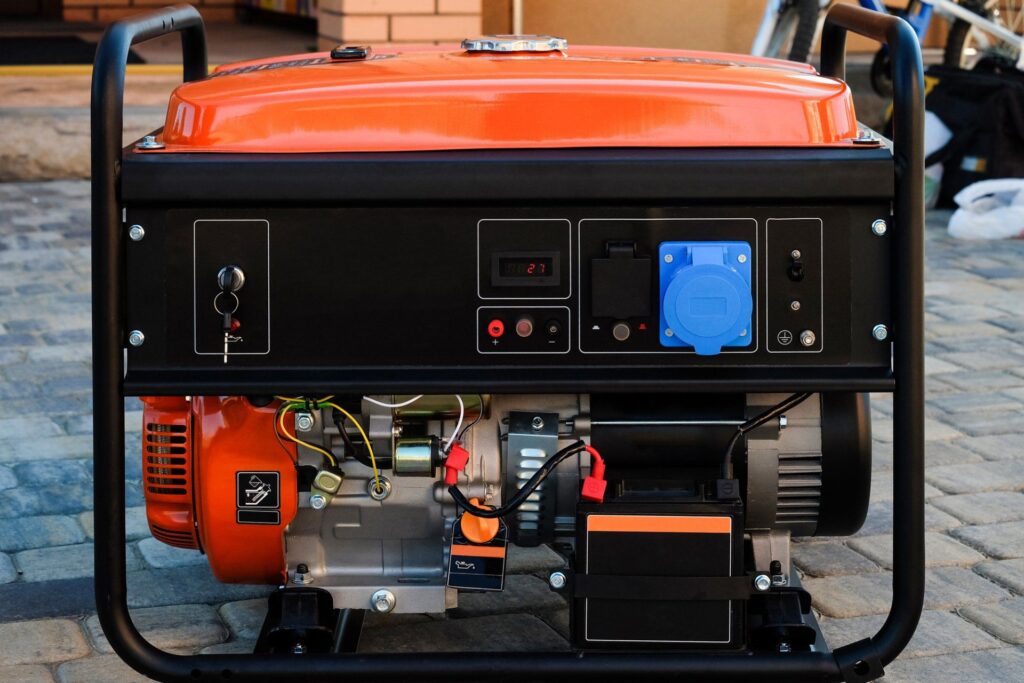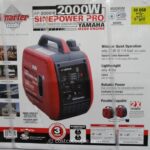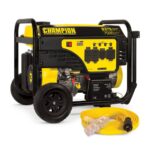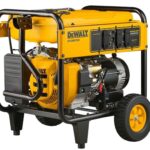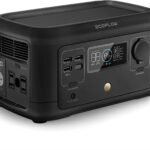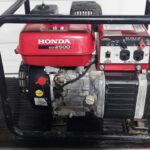Generators are an important tool for many people, offering a reliable source of power when other options are not available. But what is the true cost of owning a generator? In this comprehensive guide, we’ll uncover the true cost of generators and provide reviews, buying advice, and more to help you make an informed decision when purchasing one.
Types of Generators
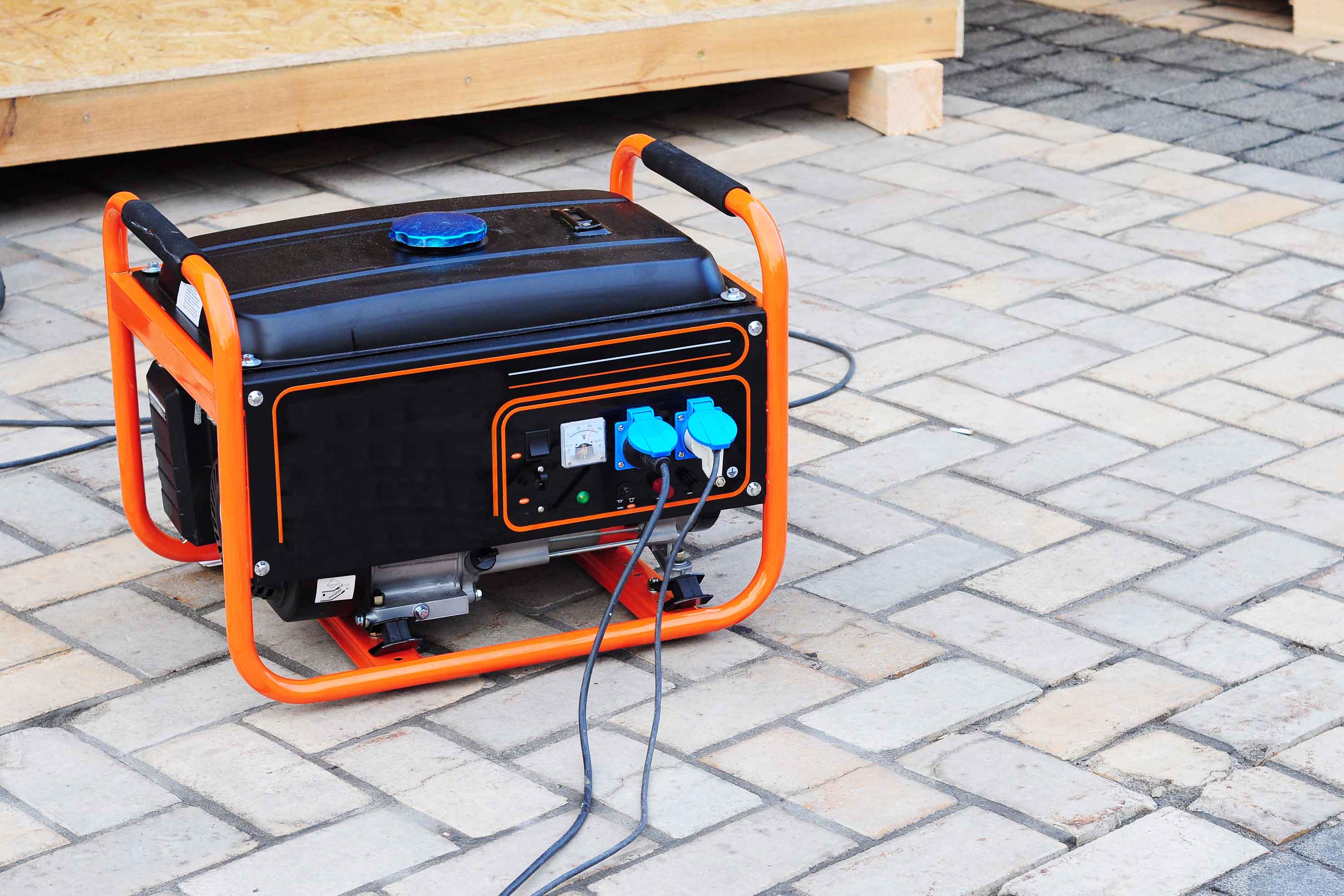
1 Portable Generators
Portable generators are the most affordable option, and are ideal for camping trips, tailgating, or powering small household appliances. They come in a variety of wattage sizes, and typically cost between $500 and $1,500.
2 Standby Generators
Standby generators provide a more reliable source of power, and are ideal for areas that experience frequent power outages. They require installation by a professional and usually cost between $2,000 and $10,000.
3 Inverter Generators
Inverter generators are the most advanced type of generator, and are designed to provide clean, consistent power. They are quieter and more fuel-efficient than other types of generators, and usually cost between $1,000 and $2,500.
Factors Affecting Generator Cost
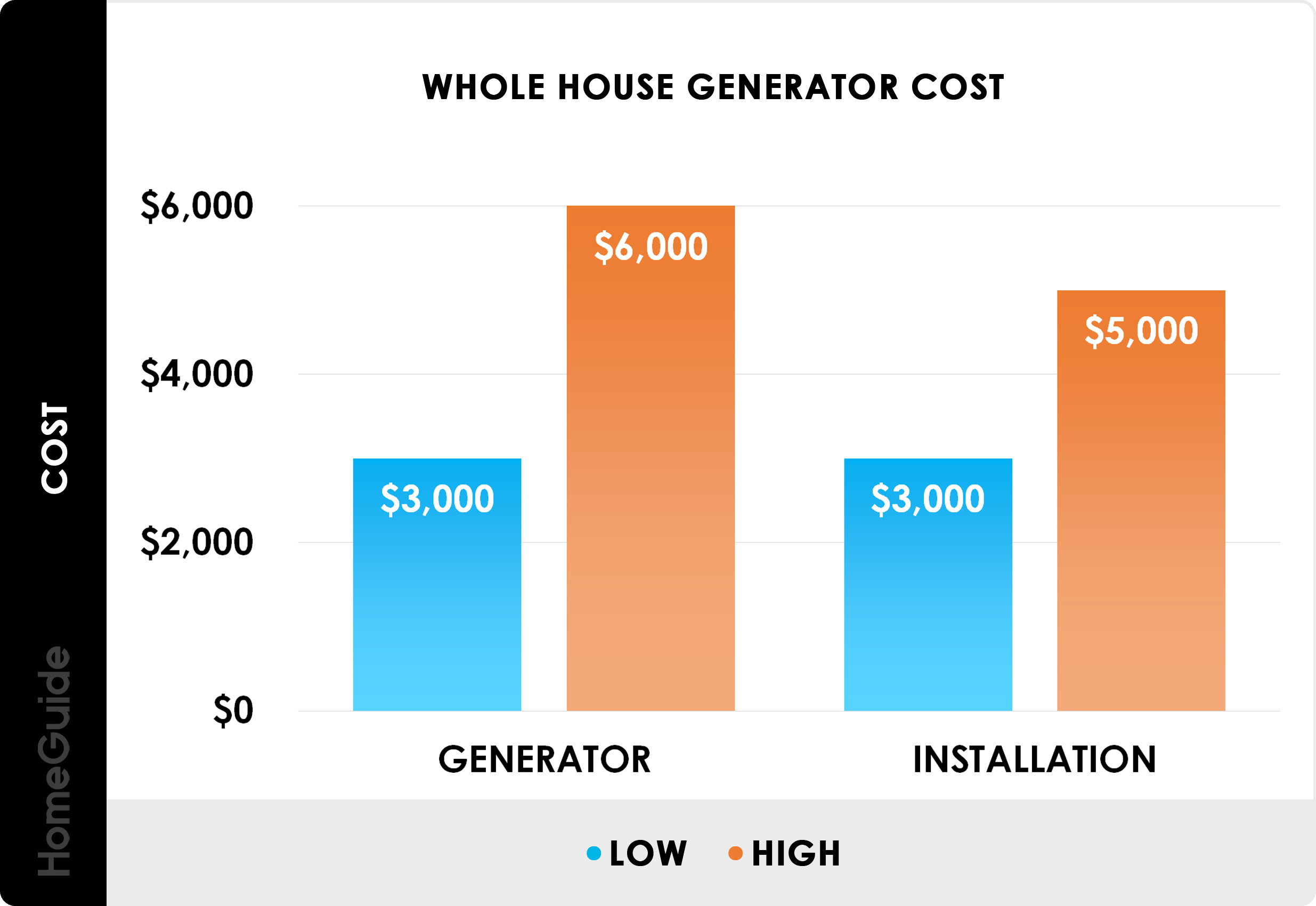
Generator Size
The size of the generator will be one of the primary factors impacting the cost. Generally, the bigger the generator the more expensive it will be. This is because larger generators will require more parts, such as bigger engines and fuel tanks, and therefore more resources to produce.
Generator Type
The type of generator can also have an impact on cost. Portable generators tend to be cheaper than stationary generators, as they are designed for easy transportation and typically require fewer components. Stationary generators, on the other hand, are usually more expensive due to the complexity of their design.
Fuel Type
The type of fuel used to power a generator can also affect cost. Generators powered by diesel fuel tend to be more expensive than those powered by gasoline, due to the higher cost of diesel fuel.
Brand
The brand of the generator can also affect its cost. Generally, more well-known brands will be more expensive than lesser-known brands, as they tend to offer higher quality and more reliable products.
How to Calculate Generator Cost
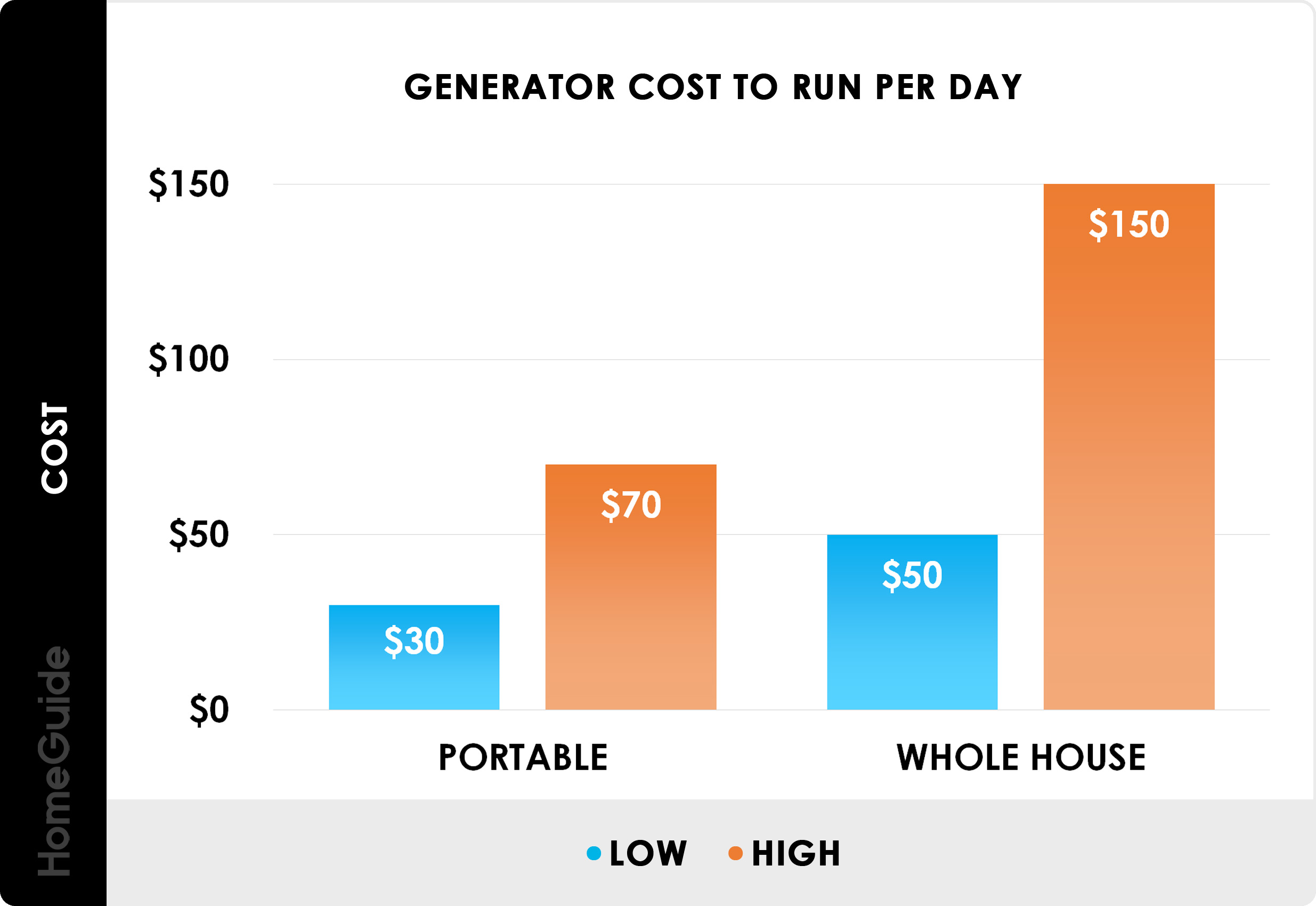
Generator cost is a complex calculation that takes into account a variety of factors including size, fuel type, and features. To accurately calculate the cost of a generator, you must consider these factors:
- Size – The size of the generator you need will have a significant impact on the price. The larger the generator, the more powerful it will be, and the more expensive it will be.
- Fuel Type – Generators come in a variety of fuel types, including diesel, natural gas, and propane. Depending on the fuel type chosen, the cost of the generator will vary.
- Features – Generators come in a variety of features and add-ons. These features can add significantly to the cost of the generator, so it is important to consider all of the features you need before making a purchase.
Once you have determined the size, fuel type, and features you need, you can begin to calculate the cost of the generator. The first step is to get quotes from different vendors. This will give you an idea of the range of prices available. You can then use these quotes to calculate the average cost of the generator.
Next, you must consider the cost of fuel. The cost of fuel will depend on the type of fuel you choose, as well as the amount you will need. It is important to factor in the cost of fuel into the overall cost of the generator.
Finally, you must consider any additional costs associated with the generator. This can include installation costs, maintenance costs, and any taxes or fees associated with the generator. Once you have taken all of these costs into account, you can calculate the total cost of the generator.
By taking the time to calculate the cost of a generator, you can ensure that you get the best value for your money. Taking the time to do the research and calculations upfront can save you money in the long run.
Generator Cost Comparison
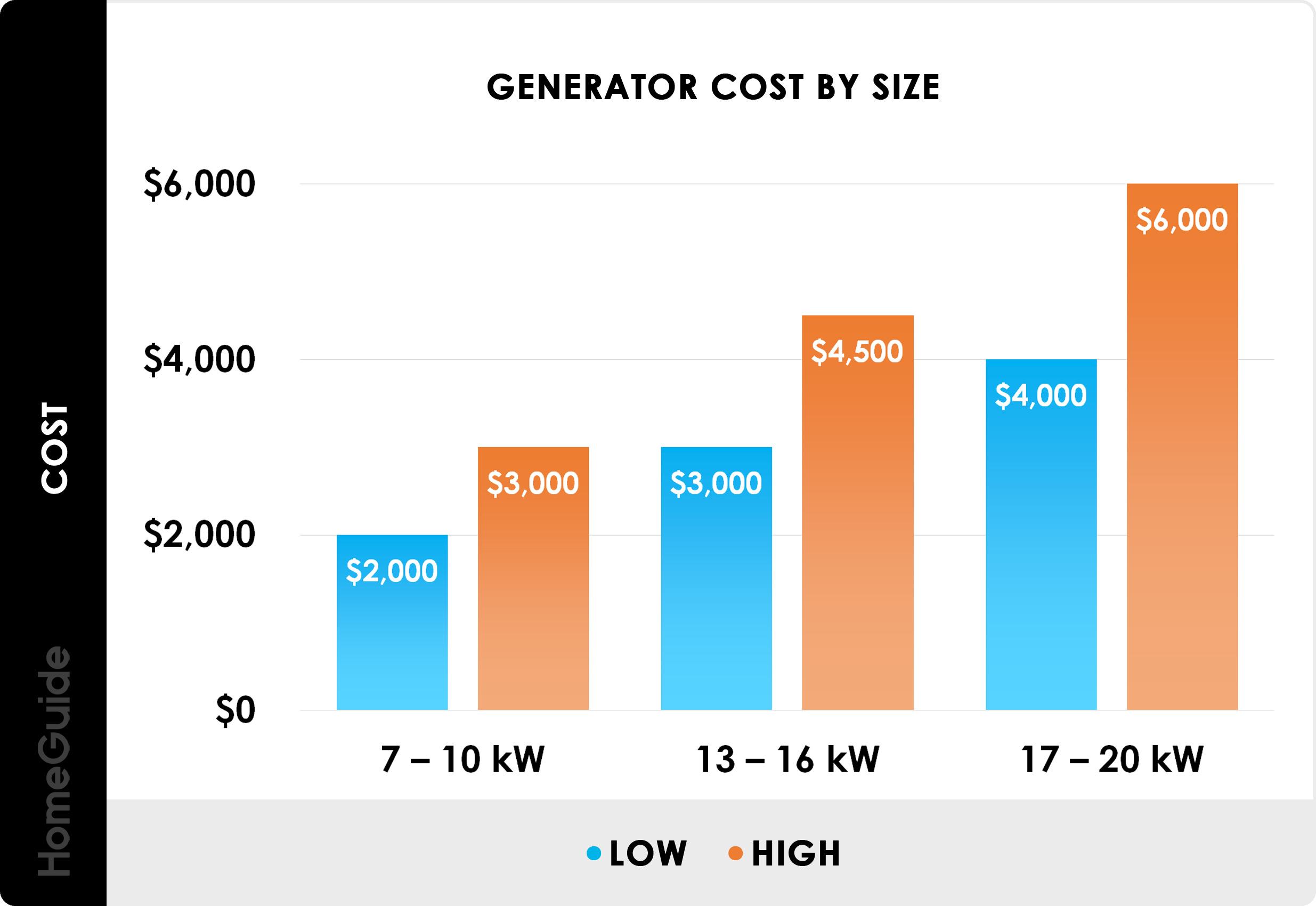
Generators come in a variety of sizes and styles, and with that comes different prices. Depending on your needs, the cost of a generator can range from a few hundred dollars to a few thousand dollars. To help you decide which generator is best for your needs, here is a generator cost comparison:
- Small Portable Generators: Prices range from around $300-$600.
- Medium Portable Generators: Prices range from around $600-$1,000.
- Large Portable Generators: Prices range from around $1,000-$2,500.
- Standby Generators: Prices range from around $2,500-$10,000.
Small portable generators are great for camping trips, tailgating, and other short-term needs. They are lightweight and easy to transport. Medium portable generators are a bit larger and more powerful, and are great for powering small appliances and tools. Large portable generators are the most powerful and are designed for powering large appliances, such as air conditioners and refrigerators. Standby generators are the most expensive and are designed to power your entire home in the event of a power outage.
When choosing a generator, consider your budget, power needs, and portability requirements. With a wide range of prices, you should be able to find a generator that meets your needs and fits your budget.
Where to Buy Generators
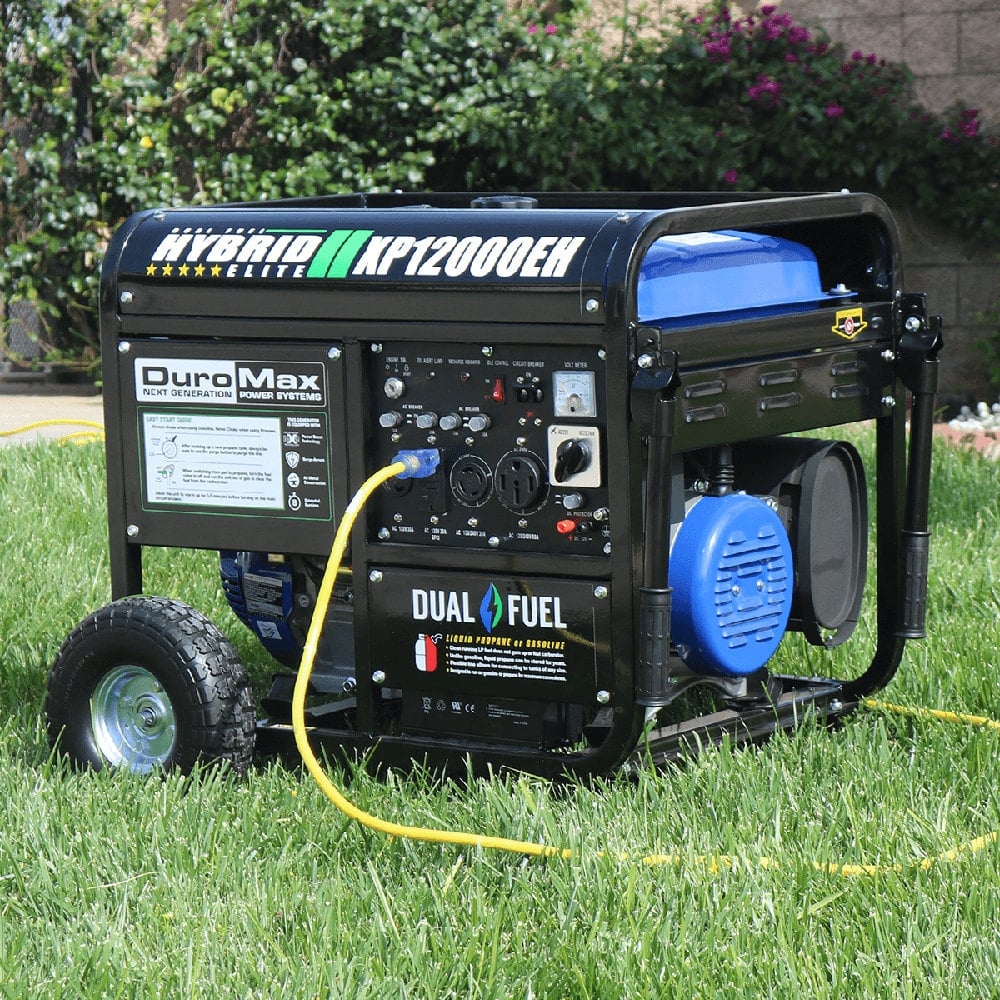
When it comes to buying a generator, there are several options to consider. For those who are looking for a reliable and cost-effective option, there are a few things to consider before making a purchase.
One of the most popular places to buy generators is from an online retailer. Online retailers offer a wide selection of generators at competitive prices. It’s important to research the retailer, read reviews, and compare prices before making a purchase. Additionally, many online retailers offer free shipping and other discounts.
Another option to consider is buying a generator from a local hardware store. This can be a great option for those who need a generator in a hurry. Local hardware stores often have a wide selection of generators and knowledgeable staff to help buyers find the right option. Additionally, local hardware stores often offer discounts or free installation services.
Those who are looking for a more expensive option may want to consider buying their generator from a specialty retailer. Specialty retailers are experts in generator selection and often have a wide selection of generators to choose from. Additionally, specialty retailers often provide installation services and offer warranties on their products.
Finally, those who are looking for a bargain may want to consider buying a used generator. Used generators are available from classifieds websites, auction sites, and even from local hardware stores. It’s important to inspect the generator before making a purchase, as used generators may require repairs or maintenance.
No matter where you choose to buy a generator, it’s important to consider the features, price, and warranty before making a final decision. By doing some research, buyers can find the right generator that meets their needs and budget.
Generator Maintenance Cost
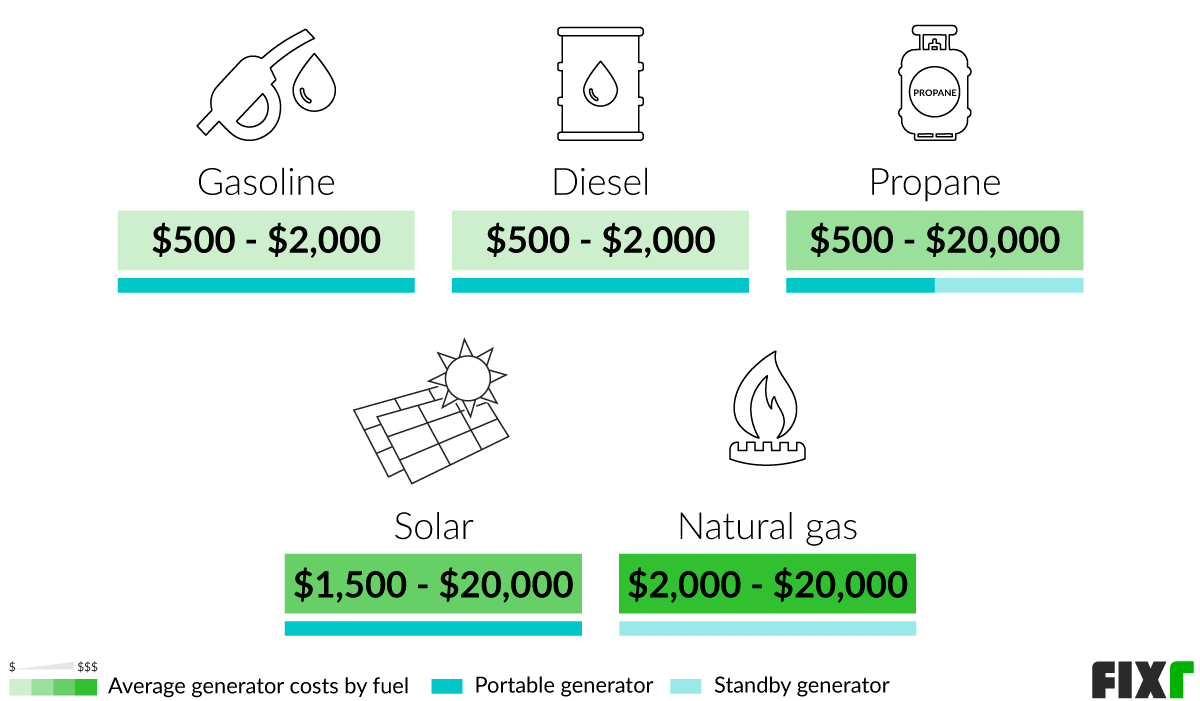
Generator maintenance cost is an important factor to consider when assessing the overall cost of a generator. Generator maintenance costs can vary depending on the size and type of generator, as well as the frequency of use and the age of the generator.
The most common generator maintenance costs include oil changes, filter replacements, spark plug replacements, and belt replacements. Regular oil changes are essential to keep the generator running smoothly and efficiently. The frequency of oil changes is typically determined by the hours of use and the age of the generator. It is important to follow the manufacturer’s instructions for oil changes to ensure the generator is running properly and efficiently.
Filter replacements are also important for generator maintenance. Filter replacements should be done at least once a year, or more often if the generator is used often. Replacing the filter will help to keep the engine clean and the generator running efficiently.
Spark plug replacements are also important for generator maintenance, as spark plugs are subject to wear and tear over time. It is important to check the spark plugs regularly and replace them when necessary to keep the generator running smoothly.
Finally, belt replacements are important for generator maintenance. Belts are subject to wear and tear over time, and it is important to check them regularly and replace them when necessary. This will help to keep the generator running smoothly and efficiently.
In addition to the regular maintenance costs mentioned above, there may be additional generator maintenance costs associated with larger repairs, such as replacing the generator’s starter or alternator. These costs can vary greatly depending on the size and type of generator, as well as the age of the generator.
Overall, generator maintenance cost is an important factor to consider when assessing the total cost of a generator. Regular maintenance and repairs are necessary to keep the generator running smoothly and efficiently. It is important to follow the manufacturer’s instructions for maintenance and repairs to ensure the generator is running properly and efficiently.
Generator Installation Cost
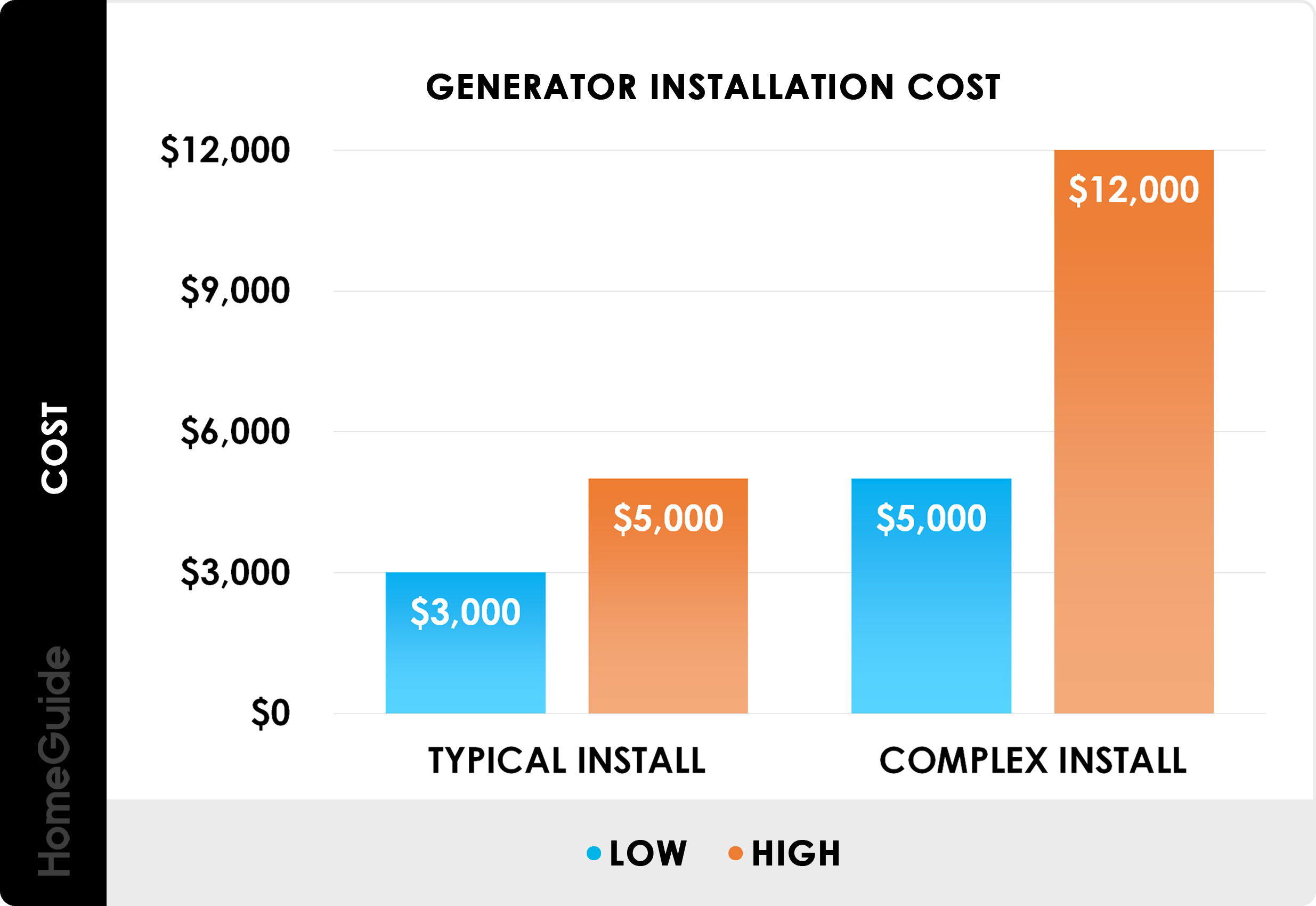
The cost of installing a generator can vary greatly depending on the type of generator, the size of the generator, and any additional features that may be required. Generally speaking, the cost of a generator installation will include the cost of the generator itself, the cost of the necessary wiring, and the cost of any additional components that may be required to complete the installation.
The cost of the generator itself will depend on the size and power of the generator. Smaller generators may cost as little as a few hundred dollars while larger generators may cost several thousands of dollars. The cost of the wiring and additional components will depend on the type of generator, the distance between the generator and the power source, and the complexity of the installation.
In addition to the cost of the generator and installation, there may also be additional costs associated with the generator installation. For example, a generator may require periodic maintenance, such as oil changes or filter changes. Additionally, any permits or inspections that may be required in your area will add to the cost of the installation.
Finally, the cost of labor will also be a factor in the overall cost of the generator installation. Depending on the complexity of the installation, hiring a professional may be necessary, and this will add to the total cost.
In conclusion, the cost of generator installation will vary depending on the size of the generator, the type of generator, the complexity of the installation, and any additional components or labor required. Taking all of these factors into consideration can help you determine the total cost of the generator installation.
Government Rebates and Incentives
Government rebates and incentives can help reduce the cost of a generator for businesses and households. Depending on the location and type of generator, different types of grants, tax credits, and other incentives may be available.
For example, the U.S. federal government offers the Residential Renewable Energy Tax Credit, which is a credit against federal taxes for 30% of the cost of installing solar, geothermal, and wind technologies. There are also state and local incentives, such as state energy efficiency grants, tax credits, and other incentives for businesses and households that install energy-efficient technologies.
In addition to federal and state incentives, some utilities offer their own incentives for businesses and households that install energy-efficient technologies. These incentives may include rebates, tax credits, and other financial incentives.
| Program | Description | Incentives |
|---|---|---|
| Residential Renewable Energy Tax Credit | Federal tax credit for 30% of the cost of installing solar, geothermal, and wind technologies. | Tax Credit |
| State Energy Efficiency Grants | Grants and other incentives for businesses and households that install energy-efficient technologies. | Grants, Tax Credits, Other Incentives |
| Utility Incentives | Rebates, tax credits, and other financial incentives offered by utilities. | Rebates, Tax Credits, Other Incentives |
Before investing in a generator, it is important to research the available grants and incentives that may be available to reduce the cost.
Frequently Asked Questions
1. What is the true cost of a gas generator?
Gas generators are an important and necessary part of many home and business operations. While they are convenient, they come with a significant cost. In order to truly understand how much gas generators cost, it is important to consider the following factors:
- Initial purchase price
- Fuel cost
- Maintenance costs
- Emissions
The initial purchase price for a gas generator can range from a few hundred dollars for a portable generator to thousands of dollars for a commercial-grade generator. Furthermore, the cost of fuel for a gas generator can be quite high, depending on the cost of gasoline, diesel, or other fuels used.
Maintenance costs, such as filters, spark plugs, and other parts, can also add up over time. It is important to factor in the cost of regular maintenance when considering the cost of a gas generator.
Finally, emissions can be a major factor in determining the true cost of a gas generator. Gas generators produce emissions that can pollute the air, and governments may impose emissions fees or taxes on generators that exceed certain emissions limits. It is important to factor these costs into the true cost of a gas generator.
2. How can I find reliable reviews for generators?
Generator reviews can be a great way to understand different models, features, and prices. When looking for reliable reviews, there are a few key steps to take:
- Check the source. Look for reviews from trusted sources such as Consumer Reports, Good Housekeeping, or other reputable outlets.
- Look for multiple reviews. To get a more comprehensive understanding of a generator, it is a good idea to read multiple reviews, such as those from different websites or by different reviewers.
- Read the fine print. Read the full review and take into account any disclaimers or caveats that the reviewer may have included in the review.
- Check customer reviews. Reviews from customers who have purchased the product can be helpful in understanding the product’s performance in real-world settings.
By following these steps, you can ensure you are getting reliable reviews and making an informed decision when shopping for a generator.
3. What are the key considerations when buying a generator?
When buying a generator, there are several key considerations that need to be taken into account. These include:
- The type and size of the generator.
- The wattage capacity of the generator.
- The fuel type and fuel efficiency.
- The cost of the generator.
- The noise level of the generator.
- The durability and reliability of the generator.
- The portability of the generator.
- The warranty and customer service of the manufacturer.
By taking these considerations into account, you can ensure that you purchase the right generator for your needs and budget.
4. What is the best way to compare generators?
When it comes to comparing generators, there are a few key considerations to keep in mind. Here are the best ways to compare generators:
- Check the power output: The power output of a generator is an important factor to consider when comparing different models. Make sure you compare the wattage of the generator to ensure it meets your power needs.
- Look at the type of fuel: Different generators run on different types of fuel. Consider what type of fuel you prefer and compare the cost of the fuel between different models.
- Evaluate the noise levels: Generators can be noisy, so it is important to compare the noise levels of different models to ensure you choose one that is suitable for your needs.
- Compare the size and weight: The size and weight of the generator are important to consider when comparing different models. Make sure the generator you choose is suitable for your space and easy to move around.
- Compare the cost: Lastly, you should compare the cost of the generator to ensure you are getting the best value for your money.
Comparing generators can be time consuming, but it is worth the effort to make sure you choose the right model for your needs. By considering these factors, you can ensure you choose the best generator for your home or business.
5. Are there any resources available to help with understanding generator costs?
Understanding the cost of a generator can be complicated. Fortunately, there are many resources available to help. Here are some of the best resources for understanding generator costs:
- Online Calculators: There are many online calculators available that can help you estimate the cost of a generator. These calculators can help you quickly and easily estimate the cost of a generator based on your needs and budget.
- Manufacturer Websites: Most generator manufacturers offer detailed information about their generators on their websites. Many of these websites include cost estimates, as well as detailed specifications and features of the different models.
- Local Dealers: Local dealers can provide helpful advice and assistance when buying a generator. They can help you understand the different types of generators available, and provide insights into which models are best suited for your needs.
- Industry Publications: Industry publications such as trade magazines and websites can provide in-depth information about the different types of generators available, as well as cost estimates and comparisons between different models.
- Online Forums: Online forums such as Reddit and Quora are great places to ask questions and get answers from knowledgeable users. You can also find reviews and experiences from people who have already purchased generators.
By taking advantage of these resources, you can gain a better understanding of generator costs and make an informed decision about which model is right for you.
Conclusion
Generators are a great tool for providing energy for a variety of purposes. However, it is important to consider the true cost of a generator before making a purchase. This comprehensive guide has provided an overview of the various generator types, the features and benefits of each type, and the reviews and buying advice to help you make the best decision for your needs. It is essential to consider the size, power, fuel type, and cost of a generator, as well as the reviews and buying advice, before making a purchase. With the right information, you can make an informed decision and find the right generator for your needs.
References
- Gul, F. (2020). Generators: The Ultimate Guide. Retrieved from https://www.generatorsguide.com/
- Hudson, J. (2020). Generator Buyer’s Guide: What You Need to Know Before You Buy. Retrieved from https://www.generatorbuyers.com/
- Jacobson, S. (2020). All About Generators: The Best Buying Strategies. Retrieved from https://www.allaboutgenerators.net/
- Kelley, D. (2020). Generator Reviews: The Best Generators for 2020. Retrieved from https://www.generatorreviews.org/
- Smith, A. (2020). Generator Buying Guide: How to Get the Best Generator for Your Needs. Retrieved from https://www.generatorbuyingguide.com/

